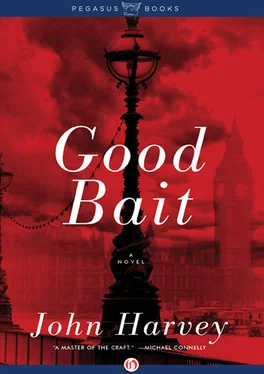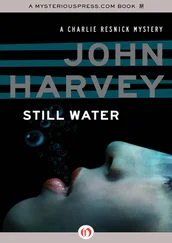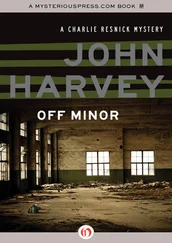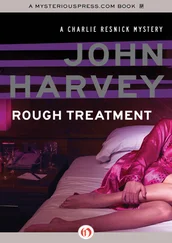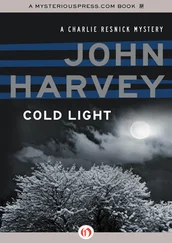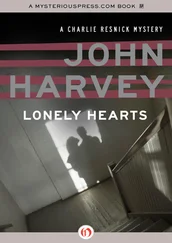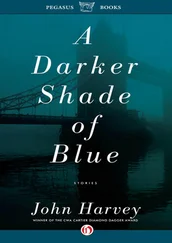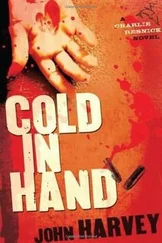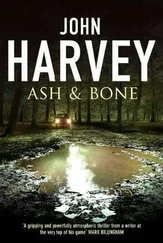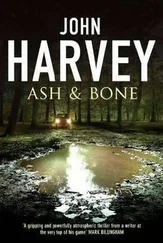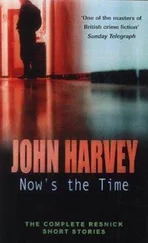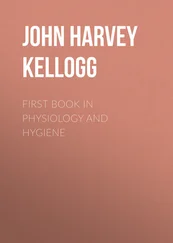John Harvey - Good Bait
Здесь есть возможность читать онлайн «John Harvey - Good Bait» весь текст электронной книги совершенно бесплатно (целиком полную версию без сокращений). В некоторых случаях можно слушать аудио, скачать через торрент в формате fb2 и присутствует краткое содержание. Жанр: Триллер, на английском языке. Описание произведения, (предисловие) а так же отзывы посетителей доступны на портале библиотеки ЛибКат.
- Название:Good Bait
- Автор:
- Жанр:
- Год:неизвестен
- ISBN:нет данных
- Рейтинг книги:4 / 5. Голосов: 1
-
Избранное:Добавить в избранное
- Отзывы:
-
Ваша оценка:
- 80
- 1
- 2
- 3
- 4
- 5
Good Bait: краткое содержание, описание и аннотация
Предлагаем к чтению аннотацию, описание, краткое содержание или предисловие (зависит от того, что написал сам автор книги «Good Bait»). Если вы не нашли необходимую информацию о книге — напишите в комментариях, мы постараемся отыскать её.
Good Bait — читать онлайн бесплатно полную книгу (весь текст) целиком
Ниже представлен текст книги, разбитый по страницам. Система сохранения места последней прочитанной страницы, позволяет с удобством читать онлайн бесплатно книгу «Good Bait», без необходимости каждый раз заново искать на чём Вы остановились. Поставьте закладку, и сможете в любой момент перейти на страницу, на которой закончили чтение.
Интервал:
Закладка:
The piece starts off with an easy swing, relaxed, a wash of cymbals behind the horns; and then, without warning, thirty seconds in, the trumpet unleashes itself into a blistering run, a chorus torn from another place, a world moved on. After that — an anti-climax, how could it be anything else? — the trombone and then the saxophone take their own pedestrian time, the sax straining towards the end, wanting more without seemingly knowing how. Only in the closing bars do we hear the trumpet clearly again, skittering irrepressibly around the final statement of the theme — puckish — up and down and in between.
‘Good Bait’. Dizzy Gillespie All Stars: New York City, 9 January.
Cordon poured the coffee, added milk.
Set the track to play again.
Concentrated on the sound.
A couple of days now since he had seen the report in the paper? The paragraph in the Cornishman concise and to the point.
The body of a woman who was fatally injured after falling under a Tube train at Finsbury Park, north London, four days ago, has been identified as that of Maxine Carlin, aged 46, formerly resident in Penzance. A neighbour, who did not wish to be named, told The Cornishman she thought Mrs Carlin had gone to London to see her daughter .
How many days?
Maxine Carlin, forty-six.
Heroin. Alcohol. Children aborted, almost certainly; children taken into care. Men who spoke with their fists or not at all.
Forty-six.
A wonder she lived as long as she did.
For an instant he saw the train. The speed of it as she fell. The music again, unchanging. Outside, the sky offered no release.
It was none of his business, none. Gone to London to see her daughter. Well, so what if she had? Gone missing, i’n’t she? Rose. Letitia. That stupid bloody name! He saw her face, Letitia’s, younger, smiling, the dog lifting her head to lick the back of her hand. Letitia. Rose. Thought a lot of you, fuck knows why .
Jack Kiley and himself were of an age. Kiley, ex-professional footballer, albeit briefly; ex-Met. Now eking out a living as a private investigator. Security work a lot of it, private security, small scale: B-list celebrities, sports stars, hangers-on amongst the minor royals. There was a firm of local solicitors for whom he ran checks, chased payments, sat hour on hour in nondescript cafes, staring out through steamed-up windows; hunkered down behind the wheel of a borrowed car, waiting to witness some all-too-human indiscretion, reveal the truth behind the lie: the affair with the best friend’s wife or husband; the disability that magically disappeared; a second family on the far side of the city, kids nicely set up in private school; a hopeless addiction to gambling or drugs or being tied up and blindfolded, then hoisted upside down and beaten with a cane.
Kiley still had contacts in the force and used them when he could, favours carried out and called in, information bartered and exchanged; friends in low places he’d collected through the years — Soho, Notting Hill, bits and corners of the East End.
He’d met Cordon three years before, chasing down the wilful teenage daughter of a merchant banker who’d done a bunk from Channing School and gone AWOL with her ageing artist lover in Cornwall. Sixty-four years young, a painter of vivid semi-abstract seascapes, small impasto nudes, his studio in St Ives looked out over the beach at Porthmeor.
After days of intense negotiations, during which many tears were shed and money, a considerable amount of money, was to change hands unseen, the painter joined Kiley in convincing the girl her future happiness lay in the bosom of her family.
He owed, Kiley acknowledged, Cordon a great deal for helping to bring that particular farrago to such a beneficent conclusion.
The two of them enjoyed several evenings in the Tinners’ Arms, swapping stories about the job, cases they’d worked, people they’d served under, bastards all; Kiley, a few pints in, going on to embellish tales of his time with Charlton Athletic and Stevenage Borough. Together, they went to the jazz night at the Western Hotel, Mark Nightingale stoking up a local rhythm section, then curry to follow.
‘You’re ever up in London,’ Kiley had said. ‘Give us a bell.’
Cordon had leave owing and plenty of it. Brooking no argument, he took what was his due.
‘Sure you don’t want me to meet you off the train?’ Kiley said with a chuckle. ‘Trip to the big city. Might get lost.’
‘Fuck off.’
Cordon caught the Tube from Paddington, made the change, stepped out from Tufnell Park station into a cold January day, collar raised, duffle bag, army surplus, slung over one shoulder.
Half the shops in the street were shut down, to let, windows fly-posted over. A man of around Cordon’s age, no older, sat on the pavement near the cash machine, a sheet of soiled cardboard stretched out beneath him, begging for change.
The charity shop below where Kiley lived was doing brisk business, women mostly, searching through rails of cast-offs to find something for their kids, a new skirt or top for themselves if the money stretched; neat piles of once-read books, videos no longer played, children’s games, unwanted presents from aunt this and uncle that, a loving gran.
Kiley’s place was on the second floor: bedroom, tiny kitchen, bathroom with a shower and toilet but no bath, a larger room at the front which was office and living space combined. Filing cabinet and metal shelving stood along one wall; a couple of chairs, laptop, printer, answerphone, slimline TV. On the wall opposite hung a painting, pale and undefined, the sea from Porthmeor Beach, part of the deal. If he swivelled round from his desk, Kiley could look down into the ever-busy street.
Cordon dumped his bag, glad to be rid of the weight, and looked around.
‘So where is it?’
‘Where’s what?’
‘The couch. You said I could sleep on the couch.’
‘Figure of speech.’
Cordon looked at the floor, thin rugs across bare boards.
‘It’s okay, you can have my bed. Just a couple of nights you said, right?’
‘And you?’
Kiley inclined his head. ‘Just round the corner. Stay with a friend.’
‘She have a name?’
‘Jane.’
‘Nice. Straightforward.’
‘You want coffee?’
‘Why not?’
While Kiley was in the kitchen, Cordon looked along the higgledy-piggledy rows of books and CDs. Names he knew; names he failed to recognise. Junot Diaz. K. C. Constantine. Gerry Mulligan. Ronnie Lane.
Mulligan he knew.
He was checking the playlist when Kiley came back in. Track three: ‘Good Bait’.
‘Don’t you ever keep these things in order?’
‘What for? Most of them I pick up downstairs. Lets me sort through sometimes if he has to pop out, needs someone in the shop. Good half of them I’ve never even played.’
‘Or read.’
‘Or read.’
The coffee was strong and slightly bitter. Good. They sat in facing chairs, angled slightly away. ‘So,’ Kiley said, ‘tell me.’
When he was through listening, he leaned back, legs crossed above the ankles, hands locked behind his head.
‘Let me get this right. The younger one, the daughter, she drops from sight, no letter, no phone call, nothing so special about that, happens all the time. But mum gets worried — mums do. Comes up to look for her, ends up under a train.’ Kiley shook his head. ‘Just about every damn time I go to catch the Northern Line, severe delays due to a person under a train at Finchley Central, a person under a train at High Barnet — somewhere.’
‘Finsbury Park.’
‘Huh?’
‘She went under a train at Finsbury Park.’
‘It used to be an incident. That’s what they’d say. The announcement over the loudspeaker. An incident at wherever. Of course, you knew, you guessed. Then, a year or so ago, there was a change of policy. Call a spade a spade, suicide a suicide. Maybe they thought it would stiffen a few backs, put people off. Jumpers. Done the opposite, seems to me.’
Читать дальшеИнтервал:
Закладка:
Похожие книги на «Good Bait»
Представляем Вашему вниманию похожие книги на «Good Bait» списком для выбора. Мы отобрали схожую по названию и смыслу литературу в надежде предоставить читателям больше вариантов отыскать новые, интересные, ещё непрочитанные произведения.
Обсуждение, отзывы о книге «Good Bait» и просто собственные мнения читателей. Оставьте ваши комментарии, напишите, что Вы думаете о произведении, его смысле или главных героях. Укажите что конкретно понравилось, а что нет, и почему Вы так считаете.
